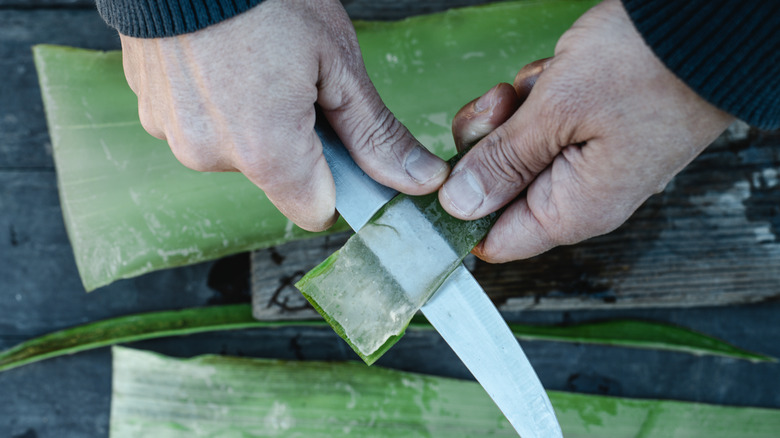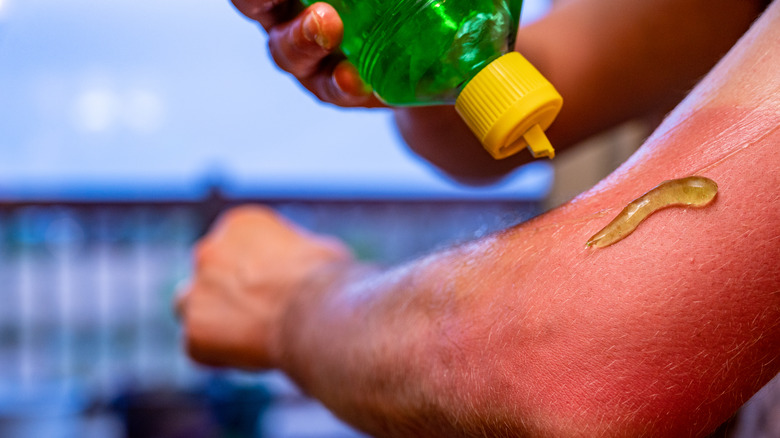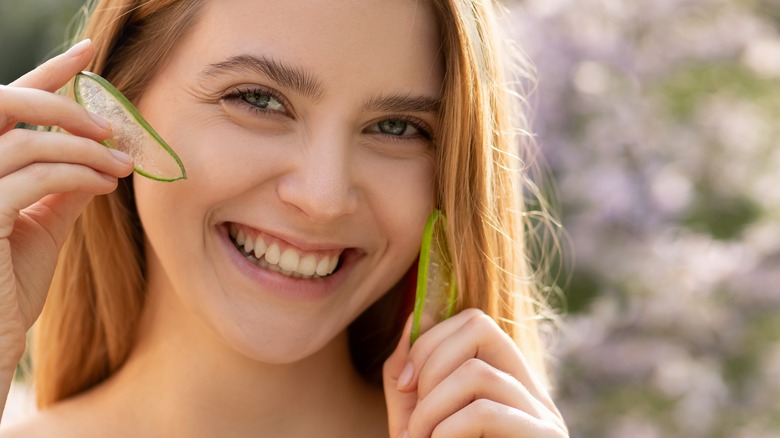Should You Pack Aloe For Your Next Outdoor Adventure?
You may be familiar with products containing aloe or the bottle of aloe gel sold in stores for after-sun care. This product comes from a plant known as aloe vera. It's a succulent that grows in hot and dry climates and is said to have many benefits in daily skin-care routines. However, it's most commonly used for treating sunburns.
When you get a sunburn, it's almost a second thought to grab something that contains aloe vera. It's a popular skin soother, especially after staying in the sun too long. Its helpfulness in soothing a sunburn may leave you wondering if this is something that could benefit you during outdoor adventures, such as hiking or traveling.
While it's a great option for aftercare, there's no need to bring it on a shorter trip outside, especially with the main purpose of soothing sunburns. For those looking to stay out in the wilderness for a few days, though, it has several beneficial properties that may be worth taking this plant along with you, centered around soothing your skin after an injury or irritation.
Does aloe actually treat a sunburn?
Many after-sun products claim to include some level of aloe because it helps cure sunburns, but that's not actually the case. "Aloe does not prevent sunburn, and it's also been shown to be no more effective in treating sunburn than a placebo in multiple studies," says dermatologist Dr. Paul Benedetto to Cleveland Clinic.
However, while aloe doesn't necessarily help cure a sunburn, the gel does have some benefits to soothe your skin and make the pain of a burn easier to handle. It has properties that are anti-inflammatory, antioxidant, and skin-protective. These benefits may not heal a sunburn, but they do help the skin feel better and prevent excessive peeling afterwards. Also, aloe reduces your pain, which is why some research suggests it as a way to help with frostbite in the wilderness. While it won't cure these skin problems, it will reduce the pain from it healing.
Just make sure you stick with pure aloe vera, either in gel form or directly from the plant. A 2019 study published in the Iranian Journal of Medical Sciences showed that creams and lotions aren't as effective when it comes to recovering from burns as the gel. If you are going to use lotions, avoid those with fragrances and alcohols, which can irritate the skin.
Taking aloe on your adventure
Aloe offers a way to care for your skin after you get a sunburn. However, it doesn't prevent one or offer any immediate effects to stop your skin from turning red or promote healing. With all this information in mind, it's safe to say there's not really a need to bring aloe vera on your next short outdoor trip. If you have limited space, it's better to carry sunburn prevention. If you apply sunscreen while outside regularly, or cover up, which is better than just wearing sunscreen, then you can prevent a sunburn and have no need for aloe at all.
Keeping some at home, in case you slip up and do get burned or injured, can be useful to help you sleep easier at night thanks to the cooling properties of the aloe. When it comes to packing up for a hike though, use the space you save to bring an extra sun shirt or bottle of sunscreen.
For longer trips, if you do have space and you're going to be gone for several days, it might be helpful to bring some. While you want to try and prevent sunburns from ever happening, that's not all aloe vera is good for. It helps soothe the skin after all sorts of surface pain, including rashes, dry skin, bug bites, and minor cuts. In fact you may want to consider adding a small bottle to your first-aid kit.


